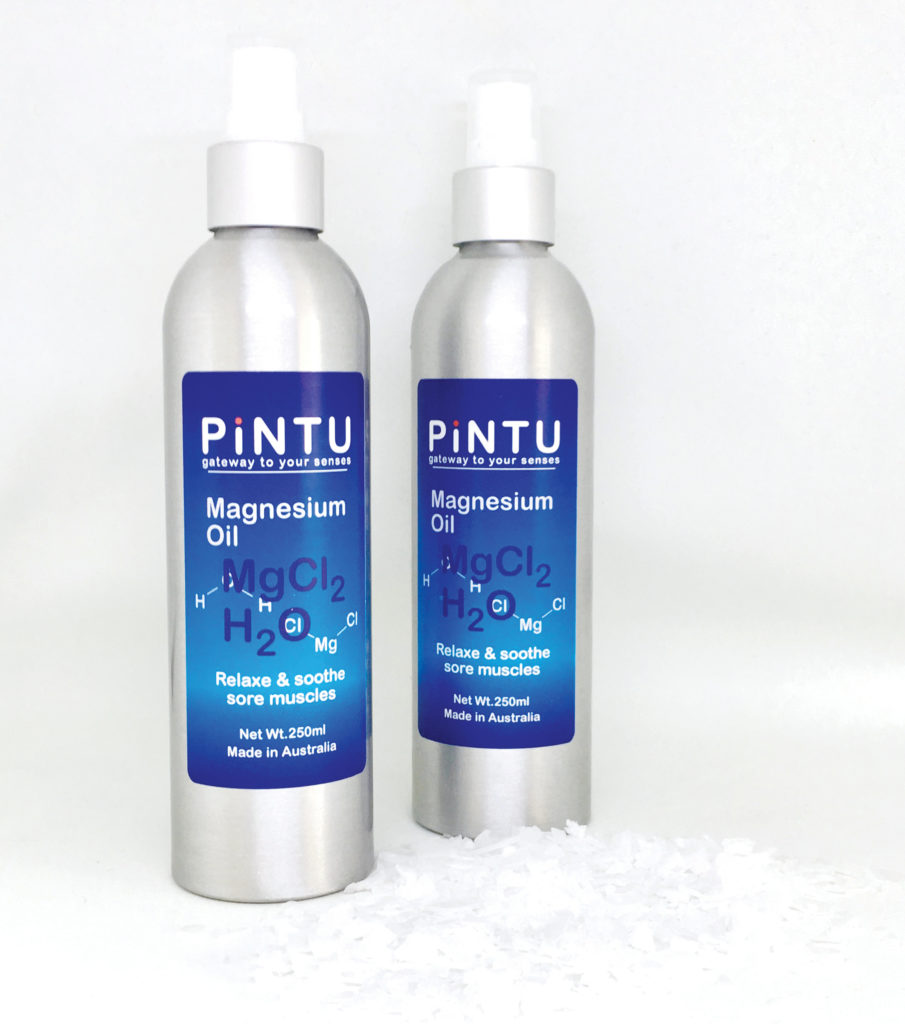
Have you ever cramped up during a run, felt your eyelids twitching, or your fingers and/or toes feel slightly tingly? Or just feeling of fatigued for no reason?
These symptoms aren’t always something doctors will treat. Sore muscle? Put an ice pack, soak in Epsom salt or have a no-steriod anti-inflammatory drug like aspirin. Epsom salt (magnesium sulfate) will give temporary relief but it is difficult to assimilate in our body and is rapidly lost in the urine.
Magnesium is responsible for over 300 biochemical reactions in the body from protein synthesis, muscle and nerve function to blood glucose and pressure regulation. It is required for strong bones, teeth, balanced hormones, healthy nervous and cardiovascular system to well-functioning detoxification pathways. Our heart and brain which produces the most electrical activity have the highest concentration of magnesium.
Over time, our soils have become depleted of magnesium and the result is an over-abundance of other minerals such as phosphorous and potassium. And, magnesium in our food continues to diminish at processing, refrigeration and storage. Hence, we are not getting enough magnesium in our diet. It is estimated that 70-80% of humans are deficient in it.
Benefits of magnesium
Below are some of the benefits of magnesium:
- Sleep! Magnesium may improve sleep quality by helping your mind and body relax. Who doesn’t love a good sleep!
- Muscle Function! Magnesium act as natural calcium blocker by helping muscles to relax and contract. In our muscles, calcium binds certain proteins and this changes the shape of the proteins causing contraction. If your body doesn’t have enough magnesium to compete with calcium, your muscles may contract too much, causing cramps or spasms.
- Sore muscles! Magnesium help ease the tenderness, aches and pain from overworked muscles.
- Stress relief! On a chemical level, magnesium activates the parasympathetic nervous system which is responsible for getting you calm and relaxed.
Pintu’s Magnesium Oil
Having tested and research on the benefits of Magnesium and we are excited to inform that Pintu have included Magnesium Oil in our range of products.
Our Magnesium Chloride flakes are harvested from the Tibetan Plateau, at a remote pristine lake towering 3,200 meters above sea level.
We package it in 250ml bottle making it easy to spray on the exact area of pain for a fast and effective pain relief e.g. cramps, joints pains, sore muscles and aches.
Transdermal absorption of magnesium is more effective and with no laxative effects as it bypasses the gastrointestinal tract.
How to use Magnesium Spray
Sleeping & relaxation: If you have difficulty sleeping, best place to apply magnesium is on the lower half of your body or the soles of your feet. To relax the nervous system and muscular system, you can spray magnesium oil in cupped hand and rub into lower back to reach the sciatic nerve. It is best to apply magnesium oil on lower body at night.
Migraine & headache: The best place is on the back of the neck, at the top where it meets the skull. What brings on a headache is when the cardiovascular system begins to constrict. At the time of the headache, you can also apply it to the areas of tightness and tension.
Sore muscles & cramps: Apply topical magnesium daily to muscles specifically targeting known problem areas or before and after physical exercise to promote endurance and reduced chance of injury. For menstrual cramps, apply over the pelvic area.
Some of our customers find relief from skin conditions like eczema when they use Magnesium oil.
We are very excited to share this “miracle” oil with you…come check it out 🙂
